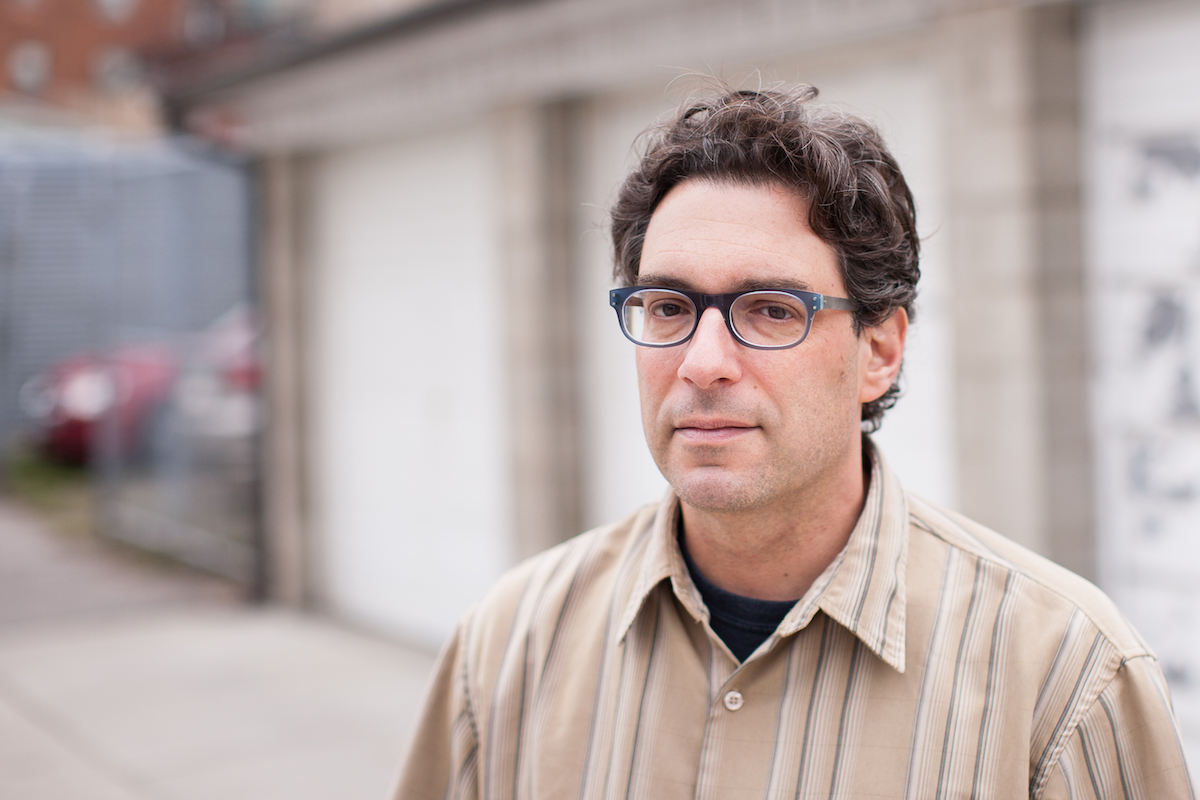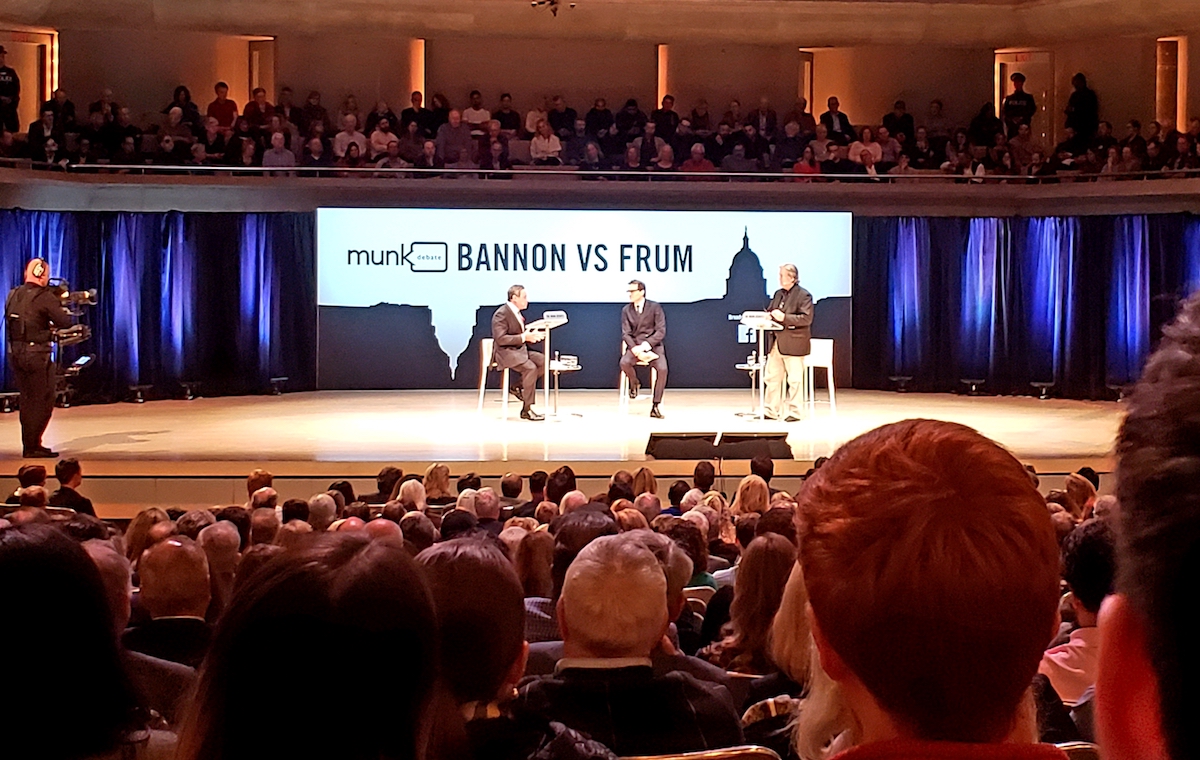Top Stories
The Mob That Came After Me Is Turning on Itself. When Will This End? Who Does This Help?
One of the justifications offered by the cultural-appropriation mob that came after me is that you cannot speak for others unless you are the other.

I am in my third year of excommunication from Canadian culture. In the spring of 2017, I wrote a magazine article that my accusers claimed had flippantly dismissed the concept of cultural appropriation—a serious thoughtcrime. My lead accuser was writer and activist Alicia Elliott, though the narrative was quickly picked up by many others. Suddenly, I no longer received invitations to write articles, speak, teach, or publish. I’d been cancelled, and barely anyone said a public word in my defence. My 25 years of work supporting independent voices in the arts was erased in an instant. So be it.
I now see this same vicious mob spirit re-emerging on a larger cultural scale. And with the stakes higher than ever, I feel compelled to speak up. The climate of fear and censorship has become so endemic to the arts and media in North America that staying silent at this point would feel like an act of capitulation—even if, as my own experience shows, it would be the prudent path. If we don’t speak now, what happened to me will become the norm, if it hasn’t already. Anyone with a dissenting opinion will be pre-emptively cancelled, shamed, and fired.
One of the justifications offered by the cultural-appropriation mob that came after me is that you cannot speak for others unless you are the other. But before we get into the ridiculous extremes to which this argument has been taken, I should point out that I never did deny that cultural appropriation can do real harm. Rather, I objected to the way cultural appropriation was applied to free expression generally, and writing in particular, with the goal being to weaponize the concept as a means to curtail debate and homogenize opinion.
So I spoke up against that weaponization. The now infamous 2017 cultural-appropriation article I wrote appeared in a small magazine available only to the published authors who comprise the membership of the Writers’ Union of Canada. It was clearly meant for that audience. No matter. Elliott, without consulting me or anyone else at the organization (which promptly compelled my resignation, a profound betrayal that I’ll write about some other time), called out the article on Twitter in a way that completely stripped it of its original context and intention. She did not mention that the article praised the exciting new generation of Indigenous writers. Nor did she highlight its main point—that book authors “should be encouraged to imagine other peoples, other cultures, other identities” in their writing. Following Elliott’s lead in framing my remarks as attacking Indigenous writers (a total fiction), others took up the call. Within 24 hours, I was repeatedly being called a racist who, as poet Gwen Benaway wrote at the time (in the now defunct Winnipeg Review), “doesn’t see the humanity of Indigenous peoples.”
I specifically quote Benaway—described in her most recent book as a “trans girl of Anishinaabe and Métis descent”—because her status sits at the heart of the latest (as of this writing) teapot tempest in Canadian literary circles. Last week, she was accused of not being Indigenous after all. This was revealed following an “investigation” conducted by a group led by none other than Elliott, Benaway’s former self-described “best friend.” The damning conclusion (the veracity of which I do not vouch for whatsoever) was released, of course, on Twitter.
It was accompanied by a long apology letter from Elliott, who had spent much of the last three years attacking anyone who strayed from her own suffocating dogmas—including me, a small author’s festival, supporters of due process for the beleaguered, cancelled author Steven Galloway, and anyone who dared question Benaway’s indigenous heritage. Hashtags in hand, Elliott would promptly leap to her friend’s defence, demanding retractions and promising to label the insufficiently contrite as forever transphobic. (I have no links to supply here: In the wake of her “investigation,” Elliot apologized for her previous association with Benaway and abruptly deleted her Twitter account.)
I guess I should be enjoying the irony of Benaway, my former inquisitor, being attacked and cast out—not to mention the possibility that Elliott herself will be excommunicated for her role in tirelessly promoting an allegedly fake Indigenous writer. But I don’t wish my fate to be visited upon anyone, even this pair. Instead, I’m angry and disgusted all over again. Whatever purge results from this latest outrage will only heighten the climate of fear and repression that artists already endure.
For years, Benaway has traded on her Indigenous bona fides, and this aspect of her claimed identity became inseparable from her brand. Will Benaway’s 2019 Governor-General award for poetry be repealed? Will Benaway’s publisher now pulp her books? This is, after all, the same publisher that promptly recalled a book of poetry about murdered and missing Indigenous women when complaints were raised that the author had not asked permission from the families to write about their lost loved ones.
Instead of the creative, risk-taking cultural scene one would expect from a country with a generous network of support for the arts, not to mention a tradition of democracy and free expression, Canada is plagued by the opposite. After I was cancelled, writers emailed me to tell me that they’d originally included Indigenous and/or people of colour as characters in their novels, but had subsequently struck those characters out. They did not want to go through what happened to me (and others). At one point, I even got an email through an anonymous server. The sender was someone who said they wanted me to know they were a person of colour who worked at a major news organization and they completely agreed with me. But they were too afraid to use their name or say where they worked.
The latest dustup is, I hope, the beginning of the end for the ridiculous idea that only DNA can grant us the right to tell certain stories or create certain characters. Yes, such situations call for sensitivity and nuance. But taken to its extreme, a puritanical approach to cultural appropriation leads us to endless accusations and counter-accusations. Consider, to pick just one of many recent cases, the attack on Cree singer Connie LeGrande, accused by Inuit artists of appropriating their style of throat singing. Even though everyone involved was Indigenous, these accusations led three acts to withdraw from the annual Indigenous Music Awards, splintering the small, well-intentioned organization and turning the event from a celebration into a near farce.
“Who gave this group the authority to operate as cultural police?” exasperatedly tweeted Lee Maracle, an estimable elder of Indigenous literature, about Elliot’s latest “investigation.” And in another tweet: “A handful of people are setting themselves up to dismember our nations, be mindful that a small group becomes a dictatorship if we support them.”
Maracle seems to have had enough of the culture of fear and denunciation swirling around Elliott and her followers. And rightly so: We are grappling with problems that are life-and-death serious: a global pandemic and its devastating economic aftermath, systemic overuse of police force against Black and Indigenous citizens, not to mention the underlying socioeconomic inequities that leave those communities impoverished and uniquely vulnerable to mistreatment.
I’m not an expert on race or inequity, even if I seek to bring attention to these issues. I do, however, have some hard-won expertise around free expression. And when I see people leveraging Black Lives Matter and related issues to stifle legitimate discussion and debate, I am, as the college kids say these days, triggered. In May, a New York Times editor “resigned” after running an op-ed by a conservative lawmaker advocating for the use of military troops to quell violent unrest in American cities. The logic—we do not agree with this, and so it should never have been allowed to have been said!—is analogous to anti-appropriation logic. Apparently, only those who have been vetted and approved should be given a voice.
The episode was chilling. It was also a distraction. These mobbings divert readers from real problems, and push authors into a wormhole of authenticity, blood quantum, heresy-hunting, and excommunication.

While native communities across North America were battling for their survival in the midst of a pandemic, Elliot and her faction were skulking around the family of a poet, looking for dirt on a trans woman whom they’d once promoted and befriended. While Indigenous nations were protesting the disproportionate use of force by police, Elliot was scrubbing away her association with her near constant artistic companion. As complicated and fraught as the issue of Indigenous identity surely is, it’s hard to see how such witch hunts help any marginalized group.
To those who would perpetuate censorship and fear under the auspices of fighting appropriation or other thoughtcrimes, I point you to Pakistani novelist Kamila Shamsie and her finely crafted 2012 essay in Guernica, The Storytellers of Empire: “The moment you say, a male American writer can’t write about a female Pakistani you are saying, Don’t tell those stories. Worse, you’re saying, as an American male you can’t understand a Pakistani woman. She is enigmatic, inscrutable, unknowable. She’s other. Leave her and her nation to its Otherness. Write them out of your history.” All the noise and nonsense makes it easy for many to just look away. Why should we get involved if, as has been made clear to us, we have no stake in the state of the other.
I have spent a significant part of my career developing spaces where people can express themselves as they see fit, especially those who feel shut out from the mainstream conversation. My conviction is that when we create venues in which people can speak to each other without censure or fear of repercussion, we engender a sense of connection and mutual understanding. I lament that this idea is now as much under assault by the rigid forces of progressive correct-think as by the (once) intertwined forces of capital and puritanism.
This month, it was announced that the largest newspaper in Canada, the Toronto Star, was taking applications for summer internships aimed primarily at developing minority journalists. I wonder: What sort of training will these fledgling writers get at the Star, the newspaper that repeatedly trumpeted Elliott’s tweets about my supposed transgression on its front page? Their zeal for shaming suspected ideological offenders was so intense that when I ran into a senior Star editor in my neighborhood, he shook his head sorrowfully and simply said, “There’s nothing I can do.”
If your core values are censorship and mobbing, your hiring decisions are beside the point. Free expression and a plurality of diverse voices in our arts and media are not separate goals. To move forward, we must stand up for both.






